Executive coaching process
Let me guide you in determining if an executive coaching process suits your needs and to understand concretely what to expect.
Coaching journey creation process
5 steps to structure your coaching process.
STEP 1: YOU HAVE ASPIRATIONS
- Inspire, influence, and motivate your team and collaborators
- Own your unique leadership style
- Approach conflicts and uncomfortable conversations with serenitys
- Refine your Clarity of Mind Zone to excel in decision-making under pressure
- Overcome imposter syndrome to act with confidence
- Develop your emotional intelligence for authentic interactions
- Consciously choose your work-life balance
STEP 2: STRATEGIC NEEDS ASSESSMENT
- Evaluate your specific leadership development needs
- Validate stakeholder engagement and synergy
- Outline a first draft of your tailored coaching process
STEP 3: PREPARING YOUR PROCESS
- Co-create your tailored coaching process
- Plan and organize the timeframe and milestones of your process
- Carry out the preparatory work for your process
STEP 4: YOUR TAILORED PROCESS
- Kick-off meeting to set your coaching goal and progress indicators
- 1:1 coaching sessions
- 360° Leadership Assessment: Leadership Circle Profile™
- Psychometric tools: MBTI or AtmanCo
- Shadowing: On-the-Field Observation Session
- Tripartite meetings at key moments
- Development plan and coaching process debrief
- Inter-session assignments and challenges
- Co-development workshops or others
STEP 5: ENSURING SUSTAINABLE RESULTS AND GROWTH
- Analysis and evaluation of the impact of the coaching process
- Possibility of follow-up meetings and periodic coaching sessions
- Planning the next steps based on your needs
Q&A
Answers to the most frequently asked questions by my clients.
WHO IS AN EXECUTIVE COACHING PROCESS FOR?
- Business Leader: CEO, President, Co-Founder, Business Owner, and Entrepreneur.
- Seasoned Executive: VP, Senior VP, and C-suite executive with over 5 years of experience.
- Emerging Executive: VP, Senior VP, and C-suite executive new to their role, with 0 to 5 years of experience in such positions.
- Future Executive: High potentials identified by the organization as future executives, including directors or managers aspiring to executive roles within the next 5 years.
WHY LEADERS CHOOSE COACHING?
Executive coaching services are designed to equip leaders to excel in today’s context.
Coaching can help you develop self-awareness, awareness of others, and awareness of your system. It also helps cultivate a creative mindset and strengthens your leadership posture to act with intentionality, reducing the risk of activating your saboteurs, fears, and doubts, or affecting your decision-making ability.
Coaching is often a favored approach because it is quick, impactful, and solution-oriented. It is ideal when it is the appropriate approach and well-implemented to support leadership development.
WHAT IS THE CONTEXT OF TODAY'S LEADERS?
Today’s leaders operate in an environment often described by the acronym VUCA — Volatile, Uncertain, Complex, Ambiguous.
Recently, a new acronym has emerged to capture an even more disruptive reality: BANI — Brittle, Anxious, Non-Linear, Incomprehensible.
Coaching is therefore often a chosen approach; see why in the associated question.
WHAT A COACHING PROCESS IS... NOT?
To understand what coaching is, it can be helpful to know what it is not.
An executive coaching process is not training, consulting services, mentoring, a one-sided approach, a process with a diagnosis or recommendations, an easy solution, a magic formula, or a pretext to justify a dismissal, etc
WHAT TO EXPECT FROM AN EXECUTIVE COACHING PROCESS?
I won’t hide that it’s challenging to understand what to expect from an executive coaching process until you’ve experienced it. As it’s a structured process that fully adapts to your specific needs, learning pace, and context, each coaching process is unique.
Nevertheless, here’s an overview of what you can typically expect in an executive coaching process with me:
- Process duration: approximately 3 to 12 months
- Session duration: 1 to 2 hours
- Frequency between sessions: every 2 weeks (first 3 months) and then 1 to 2 times per month
- Time investment between sessions: about 1 hour between each session
For more details on the coaching process creation, see the 5-steps to structure your coaching process.
SHOULD YOU OPT FOR AN INDIVIDUAL OR COLLECTIVE EXECUTIVE COACHING PROCESS?
Coaching processes can be adapted individually or collectively to optimize impact within your organization. An individual coaching process is particularly powerful when a leader shows interest, commits, and is ready to fully invest in their development.
On the other hand, a collective coaching process is ideal for strengthening team spirit, establishing common foundations, and aligning efforts with your organization’s strategic objectives and governance.
In summary, depending on the context and needs, these two types of processes can be complementary. For collective coaching processes, I collaborate with experienced certified coaches to ensure synergy with each leader. To explore group coaching options, contact me for more information.
